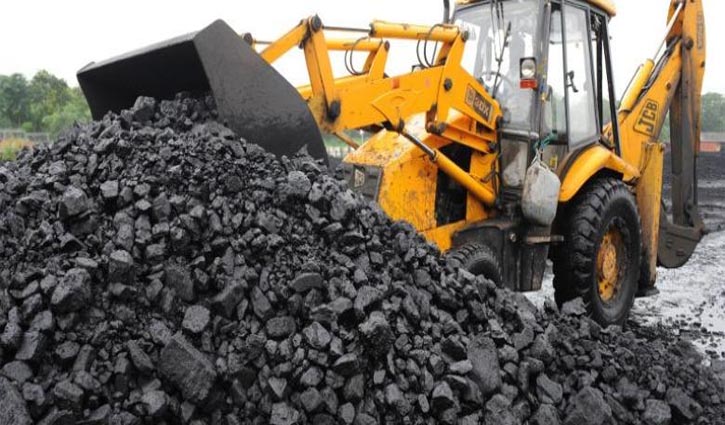Coal import increasing in Bangladesh
Md Nazmul Islam Faruque || risingbd.com

In the first five months (July-November) of the current fiscal year 2023-24, the import of goods in Bangladesh was low. However, since December, the overall trend of import of goods has started to increase. The country's total imports increased in the sixth month of the fiscal year due to an increase in the import of coal for power plants and raw materials for the iron and steel industry.
National Board of Revenue (NBR) import statistics show that the import of goods in the first six months of the current fiscal year was 66.932 million tonnes. In the same period of the previous fiscal year 2022-23, imports were 66.925 million tonnes. The trend of increasing imports started in the country in the same period. At the same time, coal imports increased.
According to the National Board of Revenue, coal imports in the July-December six months of the current fiscal year stood at 6.725 million tonnes. In the same period of FY 2022-23, coal imports were around 3.3 million tonnes. During the period under review, coal imports increased by 3.4 million tonnes or 104 %.
In the first six months of the current fiscal year, the import of raw materials for the iron and steel industry in the industrial sector has increased. In the first six months of the current fiscal year, 2.812 million tonnes of old iron pieces, the main raw material of the rod industry, were imported. In the same period of the last fiscal year 2.353 million tonnes of old iron pieces were imported. Imports have increased by 20 % in the last six months.
Concerned people say that due to the dollar-crisis situation the Bangladesh Bank has taken various steps to control the import of foreign currency reserves, which affects the import of goods, reducing imports. However, a positive trend has started in the import of total products as the import of coal has increased abnormally. Six power plants in the country are generating electricity using imported coal as fuel. Among them, Matarbari power plant has been added in the current fiscal year. A large amount of coal is being imported for these power plants. With this, the growth in coal imports has crossed 104 %.
Mostafizur Rahman, honorary fellow of the Centre for Policy Dialogue (CPD) said, the import of various sectors, including industrial raw materials, is decreasing due to the policy taken in import mainly due to the reduction of reserves. However, emphasis has been laid on the import of coal to maintain the continuity of power generation. As a result, overall imports have increased.
In the first quarter of the current fiscal year, the import of raw materials in the industrial sector has decreased by 3 to 57 percent. Some of the major export sectors are textiles, clothing, cement, plastics, animal feed, shipbuilding, marine shipping, pharmaceuticals, chemicals, etc. Even after the end of the first six months of the fiscal year, the trend of increasing import of products of these sectors has not started.
Although the import of coal has increased, the import of most of the raw materials of the industrial sector still remains negative. Imports of cotton, the raw material for the textile sector, fell by 20 percent. In the first six months of the fiscal year 2023-24, cotton imports were 0.718 million tonnes, which was 0.93 tons in the same period of the last fiscal year.
The import of animal feed soybean has decreased by about 15 per cent. In the first six months of the current fiscal year, 0.667 million tonnes of soybean seeds were imported. In the same period last year, 0.781 million tonnes were imported.
The import of clinker, the main raw material of the cement industry, has decreased by about 7 percent. In the last six months of July-December, 0.95 million tonnes of clinker was imported. In the same period last year, 10.2 million tonnes were imported.
Hasan/Mukul























